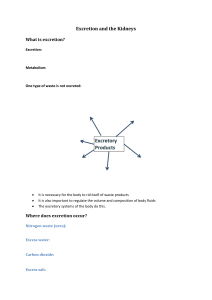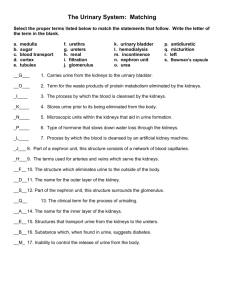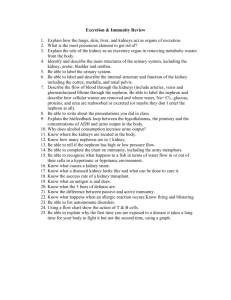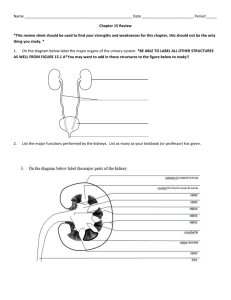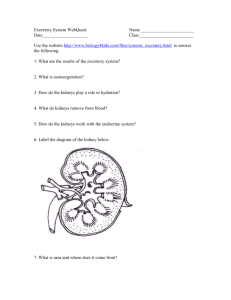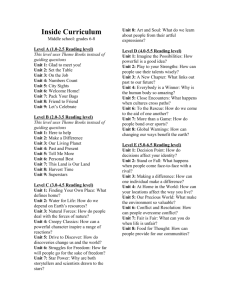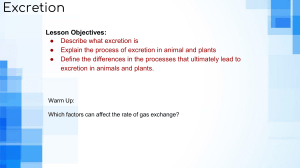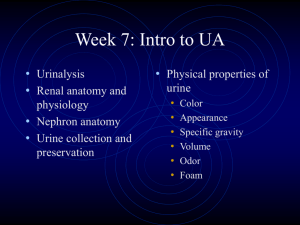3 - Kidneys, Excretion & Osmoregulation Jigsaw
advertisement
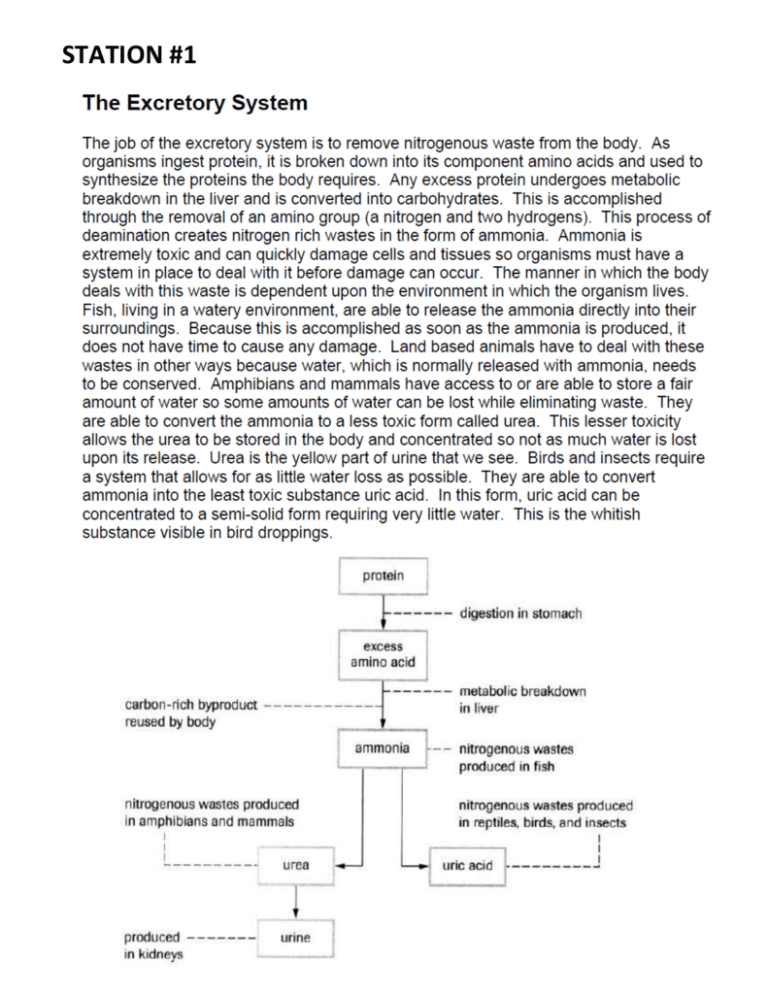
STATION #1 STATION #1 EXCRETORY SYSTEM STATION – Guiding Questions Why do nitrogen-rich compounds build up in our body? Why do organisms with bladders need to make urea? Draw a flow chart in your notes to illustrate the conversion of consumable nutrients into urine STATION #2 STATION #2 STATION #2 THE KIDNEYS – Guiding Questions What do kidneys look like and where can you find them in your body? Beside excretion name 3 additional homeostatic roles kidneys play in the human body. Draw and label a diagram of a kidney including its 3 ‘areas’, blood vessels and any additional structures that assist in excretion. STATION #3 STATION #3 STATION #3 STATION #3 NEPHRONS & URINE FORMATION – Guiding Questions What are the parts of the nephron and their functions? Draw and label a simplified diagram of a nephron. Draw another simplified diagram of a nephron and indicate on it the movement of solutes due to passive and active transport. STATION #4 STATION #4 STATION #4 OSMOREGULATION – Guiding Questions Why is osmotic pressure important to an organism’s homeostasis? Sketch a flow chart to illustrate the feedback associated with osmoregulation. Why does the blood need to be buffered? Why does blood pressure need to be balanced?
